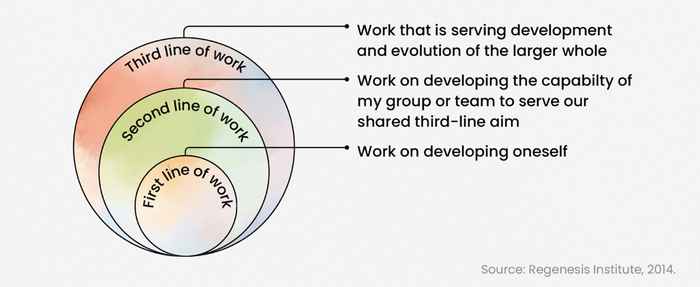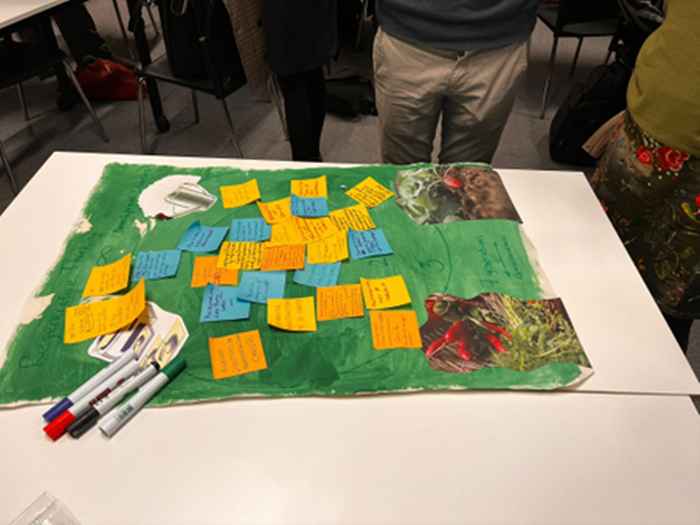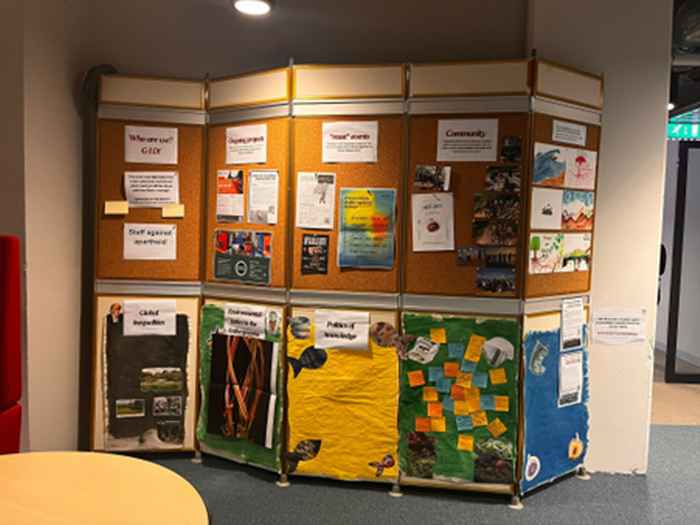Assessing the Value of Regenerative Development in International Development Studies
GID Monthly Seminar
21 February 2025
Sometimes, engaging with unfamiliar concepts or language allows us to challenge our habitual patterns of thinking about what development means. Using a ‘Living Systems’ language and theory, regenerative development aims to deconstruct,decolonise and re-think the path in which development as a field (of praxis and study) has evolved, and the role (the politics of) knowledge and education systems, institutions and processes are playing in this field.
Workshop
As part of the Governance and Inclusive Development (GID) monthly seminars - a series of gatherings organized by and for the GID community - last November, Mieke Lopes Cardozo and Karen Paiva Henrique hosted a reflexive workshop.
This workshop invited all staff members, as well as interested students, PhDs, and postdocs, to explore the (potential) added value and unique identity of our academic community in research, teaching, and societal impact.
Drawing on regenerative development and design theory, the workshop posed critical questions about the distinctive identity of 'UvA Development Studies,' the nature of our partnerships, our relevance and connections to the broader world, and how these considerations might shape our growth as learners, researchers, and educators.
Action projects
The workshop introduced aliving systems framework which is employed in various ongoing action research projects, including:
- RISERS | Researching Innovations Supporting Higher Education for Regenerative Societies
- The UvA FRIS community | Fair, Resilient and Inclusive Societies Special Interest Group
- The School of Regenerative Educators
The three lines of work framework guided three different questions to reflect on our field of IDS:
Third Line
What do you see as the collective value-adding role of development studies in the world (society, research communities, students)? How could our work include consciousness of 7 generations past, and have relevance for 7 generations ahead?
Second Line
How do we engage with different partn) do we practice/embody becoming 'engaged researchers/educators'? What is our (potential) individual contribution to development (scholarship or practice), and what would we need to develop in ourselves if we work in alignment with our Third Line of Work?
First Line
How do we practice/embody becoming 'engaged researchers/educators'? What is our (potential) individual contribution to development (scholarship or practice), and what would we need to develop in ourselves if we work in alignment with our Third Line of Work?
During the workshop, we gathered in small groups to reflect, and then we came together in a larger assembly to share both individual reflections and the insights from each group.
Reflections
Among the reflections we shared, we spoke about: fostering humble and authentic relationships; cultivating a willingness to learn and share; steering away from unhealthy competition; and nurturing an active and vibrant atmosphere as key ways to engage our community and partners in promoting a more regenerative approach to our field of study.
In terms of practice, we emphasized the importance of recognizing both the explicit and the implicit aspects of every interaction—those often hidden or rendered invisible.
We also reflected on the value of appreciating not only the work we do, but also the work we consciously choose not to do, acknowledging the limits of our capacity.
For our own well-being, we stressed the need to remember that we are embodied beings who feel and experience challenges. Prioritizing care for ourselves means actively avoiding toxic practices, such as overworking or glorifying hyper-productivity, and embracing a culture that supports balance, rest, and care.
Check out the bulletin board
To ensure the reflections initiated during our session remain active within the department, we've displayed all the collected post-it notes on the department's bulletin board. You're encouraged to read through them and contribute any additional thoughts or insights you may have. To be continued...
Looking forward to seeing you at our next seminar!


